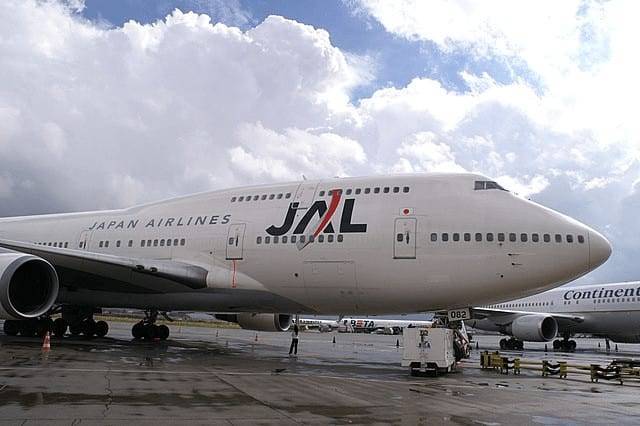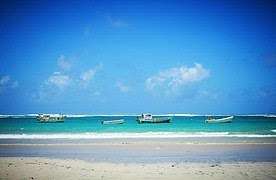Robert Reis, a longtime State Department official, is a perfect example of how far one can come from the American Heartland. Born and raised in St. Louis, Missouri, he eventually served in all corners of the globe, including Somalia. Throughout his broad career, he worked in a range of positions dealing with all matters including visas, policy related to banana and animal trade in Somalia, and even whale hunting in Japan! In this “moment” in U.S. diplomatic history, we see that Robert Reis’s career displays just how extensive a Foreign Service career can be.
The coming of age of a Foreign Service officer is not always linear by any means. Robert Reis spent a year at the Department of Labor and a private corporation, Graybar Electric, before joining the Foreign Service. Reis’s nonlinear path to joining the Foreign Service occurred during a pivotal time for U.S. foreign policy: the end of the colonial era, which was accelerated by the end of World War II as the British and French empires fell. The start of Reis’s career marked the early years after the decolonization moment hit full force, and the path of his assignments took him to the recently independent countries of Somalia, Malaysia, and Zambia. While in Somalia, Reis enjoyed many memorable experiences, such as camping on the beach in his Volkswagen Van. These memories were juxtaposed with images of Somalian police walking around with old British rifles, a remnant of the only recently gone colonial era. Most of Reis’s days, however, were not spent on the beach; instead, he focused on expanding agricultural capacity through collaboration with U.S. university programs in Somalia. Reis also served in Zambia, Washington D.C., and eventually, Tokyo, Japan. He retired after his last assignment as Deputy Chief of Mission in Malaysia in the aftermath of the Asian Financial Crisis.
Robert Reis’s interview was conducted on September 28, 2008, by Charles Stuart Kennedy.
Read Reis’s full interview HERE.
Drafted by Jordan Miner
ADST relies on the generous support of our members and readers like you. Please support our efforts to continue capturing, preserving, and sharing the experiences of America’s diplomats.
Excerpts:
“There weren’t that many dealings with the Somalis themselves. There really was not that much in the way of business.”
Agricultural Development programs: Under a USAID contract, the University of Wyoming ran an Agricultural Research facility on the Shebelle River about 30 miles southwest of Mogadishu. The University of Eastern Michigan built and ran a teacher training institute in that general area, too. Those were the two main U.S. assistance programs. The Peace Corps was also in Somalia. It seemed to me that the U.S. presence in Somalia had very little to do with Somalia itself. It really had to do with balancing or thwarting the Russians. I don’t think the U.S. policy in that part of the world was necessarily very well thought through.
“Kenneth Kaunda was the president.”

African Liberation Movements: Well, I didn’t really know the leaders because the liberation movements also had offices in Dar-es-Salaam, Tanzania and elsewhere. The leaders of the movements usually were not in Zambia. I got to know the heads of the local offices. The representative from FRELIMO (Frente de Libertação de Moçambique or the Liberation Front of Mozambique) spoke English and was well educated. He laid out for pretty clearly what FRELIMO wanted to accomplish and what its strategy was. He was friendly and easygoing and I think FRELIMO and the other organizations wanted to maintain some contact with the United States. A number of the representatives of the liberation movements had been students in the United States. For a time the United States Government had had a program to train students from southern Africa. It had come to an end by that time I was in Zambia. In the early 60’s, the United States had anticipated that South West Africa would become independent and that, similarly, Rhodesia would become independent. The independent states would require educated people to run their governments. Accordingly, the United States provided scholarships for students from Rhodesia and Namibia. Some of these people had returned from the United States and were in the liberation movement offices in Lusaka. Moses Garoeb, from South West Africa (Namibia), was very friendly. We got to know him and his wife. The representative of ZANU also had studied in the United States under the scholarship program
“Were there areas of economics that strained you and others that you flowed in?
Crash course in economics for diplomats: Well, I’m not a mathematician. There were a couple of courses that were difficult for me. The first was calculus. Before I took the course, FSI sent some books to you with a request to brush up on Algebra. I took off a couple of weeks after New Year’s and studied the algebra books. The course started with calculus. So, that was not easy for me. I think I understood the operation in calculus for about twenty-four hours after I took the exam and that was the end of it. And, then the other thing that was extremely difficult was econometrics. John Harrington, who is, I think, one of those happy people who are gifted in mathematics, gave the course. I remember one day he started writing equations at the front left part of the classroom, which was on the tenth floor of the old FSI building in Rosslyn. (Airliners came by all day long and on some days, especially on days when the clouds were low, you thought the planes would come in the window.) Well, John went all the way across the blackboard on the front of the room and then got to the right side of the room and went all the way across there with line after line after line of proofs of these econometric theorems. It was just unbelievable. I couldn’t follow it. I don’t think there were too many other people there who could either. By the end of the economic course, I understood the meaning of mathematical correlation and its use in economics but not much else of econometrics.
“Japan was hot at the time and everyone was talking about Japan’s economy.”
The Japanese economic miracle: I was there for two years, to the summer of 1978. During that time I got interested in trade and started getting interested in Japan. Japan was hot at the time and everyone was talking about Japan’s economy. There’d been a book that came out in 1976 that was two and a half inches thick edited by Hugh Patrick. He is at Columbia University. It is called Asia’s New Giant, How the Japanese Economy Works. It was an interesting analysis of why Japan worked the way it did. So, I thought it would be an interesting place to go. I didn’t have Japanese. I went to personnel and requested an assignment to Tokyo via Japanese language training. The assignment officer said that there were no language positions open, but there was a job in Tokyo that did not require language training. After some discussion back and forth I was assigned to Tokyo as a trade officer in the economic section.
“ So you had Northwest, Pan- 73 American, and then you had Flying Tigers, which was a cargo airline.”
Japanese nationalistic trade policies: To step back, after 1952 there had been various efforts on the part of the U.S. Government to negotiate increases in service over the Pacific and the Japanese always said no, because they only had one carrier and they didn’t want any more. They basically wanted to protect JAL; that’s all they really wanted. So, that was their situation. Then, in January of 1985, Nippon Cargo Airlines (NCA) was established by a group of companies, including All Nippon Airways (ANA), a domestic Japanese carrier. So, for the first time, Japan had something it wanted, so we embarked on this negotiation with the Japanese. Japan insisted that since we had three carriers and it had only one, we should just admit NCA and be done with it. The U.S. side, including the airline industry, wanted additional rights to and beyond Japan and refused to grant Japan new rights without payment.
“While we were there, from a political point of view, things got more Islamic.”
Growing influence of Islamic parties in Southeast Asia: While we were there, from a political point of view, things got more Islamic. The northeast state, a place called Kelantan, had been run by the Islamic Party of Malaysia for a number of years. They had rather strict rules. There were restrictions on serving alcohol even to non-Muslims. There were separate lines in grocery stores; women stood in one and men in the other. While we were there, the Islamic Party of Malaysia won an election in the next state south, Terengganu. The new government introduced restrictions on alcohol and the separation of men and women in grocery store checkout lines. The rise of the Islamic Party owed in part to popular opposition to what some Malays saw as a corrupt national government. In Kelantan the state government passed a law to make apostasy a capital crime and the national government had to invoke the national constitution to override that. The interesting thing is that Malaysia is not a very analytical place. I found it difficult to get people to explain in logical ways what exactly was going on with regard to the spread of Islam and the increasing orthodoxy of Islam in Malaysia.
“The first thing I was asked to do when I go to the office was to organize a conference on aid for Afghanistan that took place in October 2002.’’
Afghanistan Reconstruction: The first thing I was asked to do when I go to the office was to organize a conference on aid for Afghanistan that took place in October 2002. It turned out that the conference had to be held at the World Bank building because Iranian Government representatives had to be able to attend the conference. However, under our law or policy, official Iranians could not enter U.S. Government facilities. Accordingly, we held the meeting at the World Bank building. I think there were about 60 countries and maybe ten international organizations that took part in the meeting and pledged funds to help with Afghan reconstruction. I found out in the course of organizing the conference that in the fiscal year 2003 budget, the administration had not included a dime for Afghan reconstruction. We were in a peculiar situation. We were asking others to pledge money for Afghan reconstruction and we did not even have money in the budget for it. Luckily, the Congress on its own appropriated funds for Afghanistan and so it turned out that there was some money but the administration had not asked for it. The only thing I can conclude is, and it seems silly in retrospect, is that the Bush Administration was preparing for the Iraq war and it didn’t want to have any resources tied up.
TABLE OF CONTENTS HIGHLIGHTS
Education
BA in History, St. Louis University 1962–1966
MA in Business Administration, George Washington University 1976–?
Joined the Foreign Service 1967
Mogadishu, Somalia—Economic and Consular Officer 1968–1970
Lusaka, Zambia—Consular and Political Officer 1970–1972
Tokyo, Japan—Embassy, Economic Counselor 1990–1993
Kuala Lumpur, Malaysia—Deputy Chief of Mission 1999–2002

